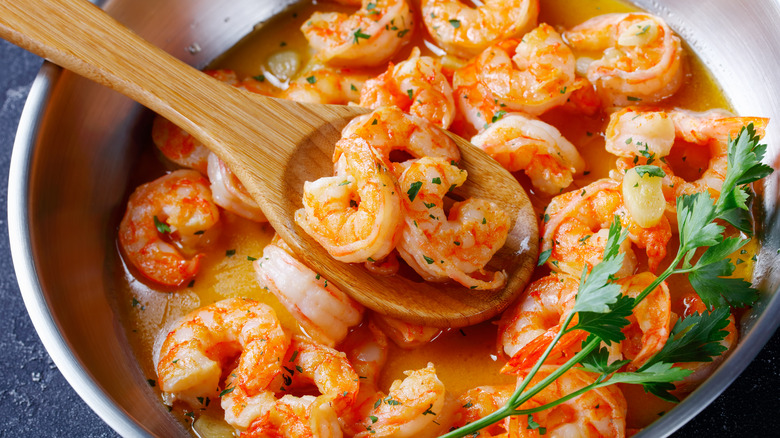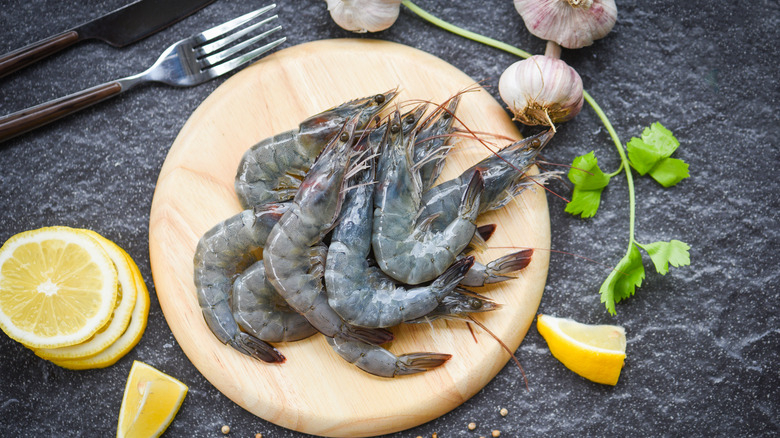The Type Of Shrimp You're Probably Eating, Regardless Of The Label
How much do we love shrimp? Let us count the ways. Not to get all Bubba Blue on you, but there are just so many dishes in which this crustacean shines, from shrimp gumbo to coconut shrimp to shrimp salad. Running the gamut from "extra small" (between 61 and 70 shrimp per pound) to "extra colossal" (under 10 shrimp per pound) (via Fine Cooking), shrimp are widely beloved for their firm texture and sweet flesh (via Serious Eats). This shellfish is perennially considered a delicacy — something that leaves it vulnerable to a phenomenon called seafood fraud.
According to Oceana, seafood fraud is a way retailers mislead consumers into thinking they're buying a certain type of desirable seafood — or a certain quantity of it — but really swapping in a different, cheaper type of seafood, or including less in the package than the weight indicated on the label. It's a rampantly common practice — affecting seafood sales between 25% and 70% of the time, according to Oceana — and is a way for retailers to make more money under fraudulent pretenses. And unfortunately, shrimp is one of those species that often falls prey to a certain type of seafood fraud.
You're probably eating farmed whiteleg shrimp
Pretty much everyone loves shrimp. According to Oceana, this crustacean is the most widely consumed seafood in the United States. But as unappetizing facts about farmed-raised shrimp have come to light, many consumers have started looking for wild-caught instead, per American Shrimp.
According to Oceana, the imported, farm-raised shrimp so commonly sold in the U.S. can be 10 times as bad for the climate as beef, due to destruction of mangrove forests. Shrimp farming economies can promote violence and human trafficking. Farmed shrimp can also be loaded with unlabeled antibiotics, which can threaten the health of those that eat them.
Yet, even when buying shrimp labeled as wild-caught — and paying a premium price for it — customers are likely to end up with farmed shrimp. According to Oceana, farmed whiteleg shrimp imported from India and Thailand is often labeled as "wild shrimp." In an investigation by the ocean advocacy nonprofit, half of mislabeled shrimp was this type in New York. On the Gulf Coast, shrimp that was not actual wild-caught local shrimp was farmed whiteleg. Additionally, in Portland, Oregon and Washington, D.C., farmed whiteleg was subbed for shrimp said to come from the Pacific, the Carolinas, and the Gulf.
So if you're looking for wild-caught shrimp, find yourself a trusted fishmonger — and, even better, look for certifications on the label from independent agencies such as Wild American Shrimp or the Marine Stewardship Council (via HuffPost). Happy hunting!

